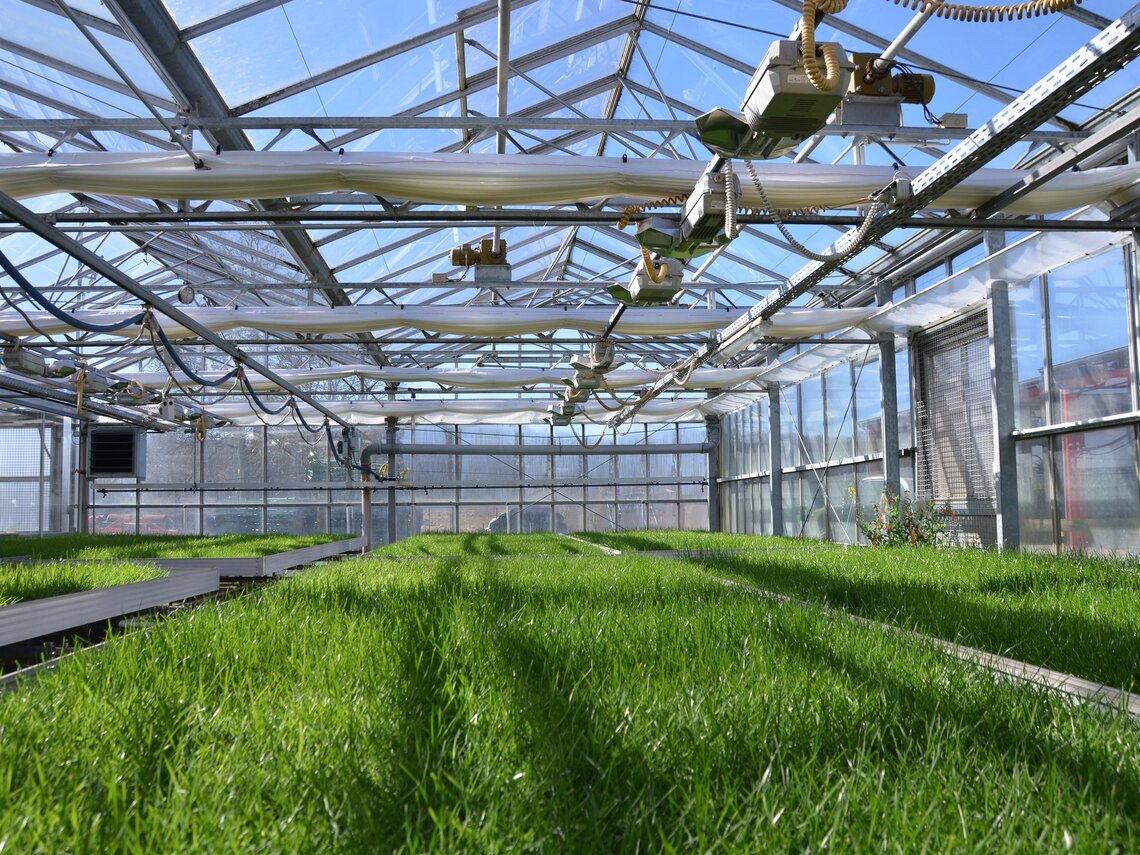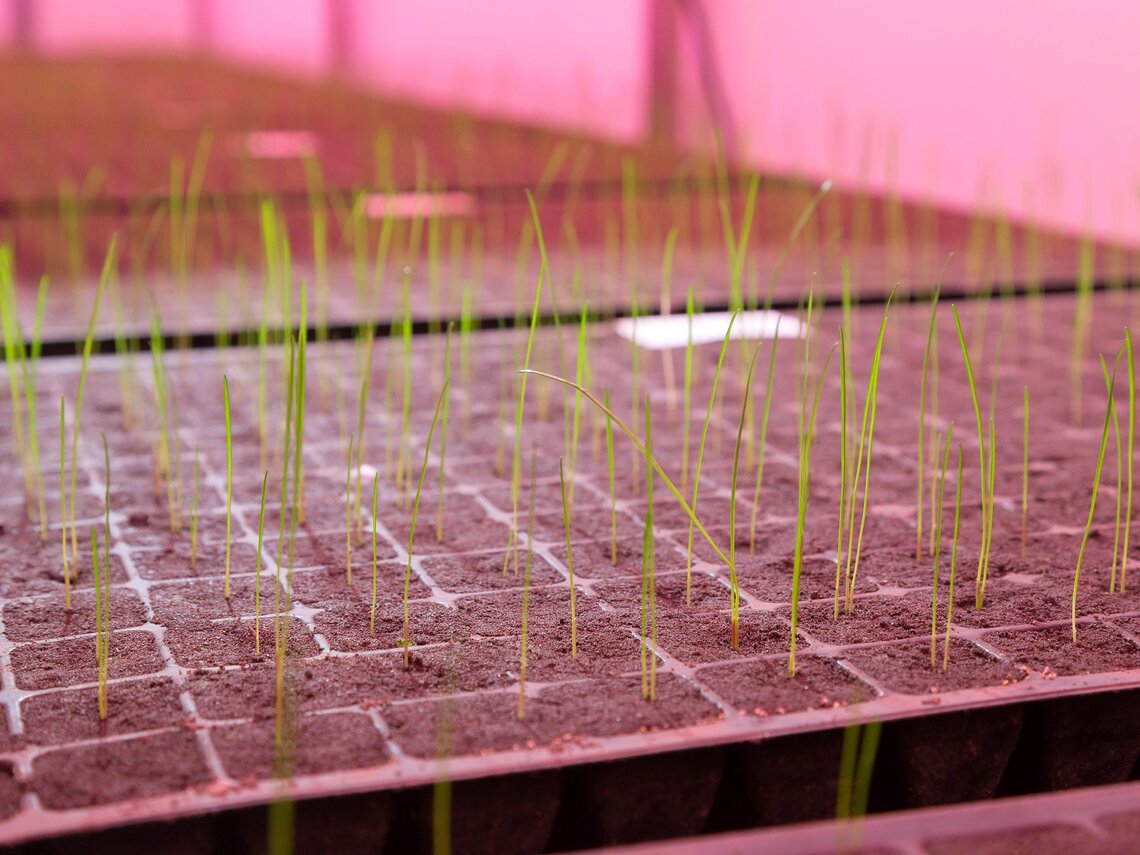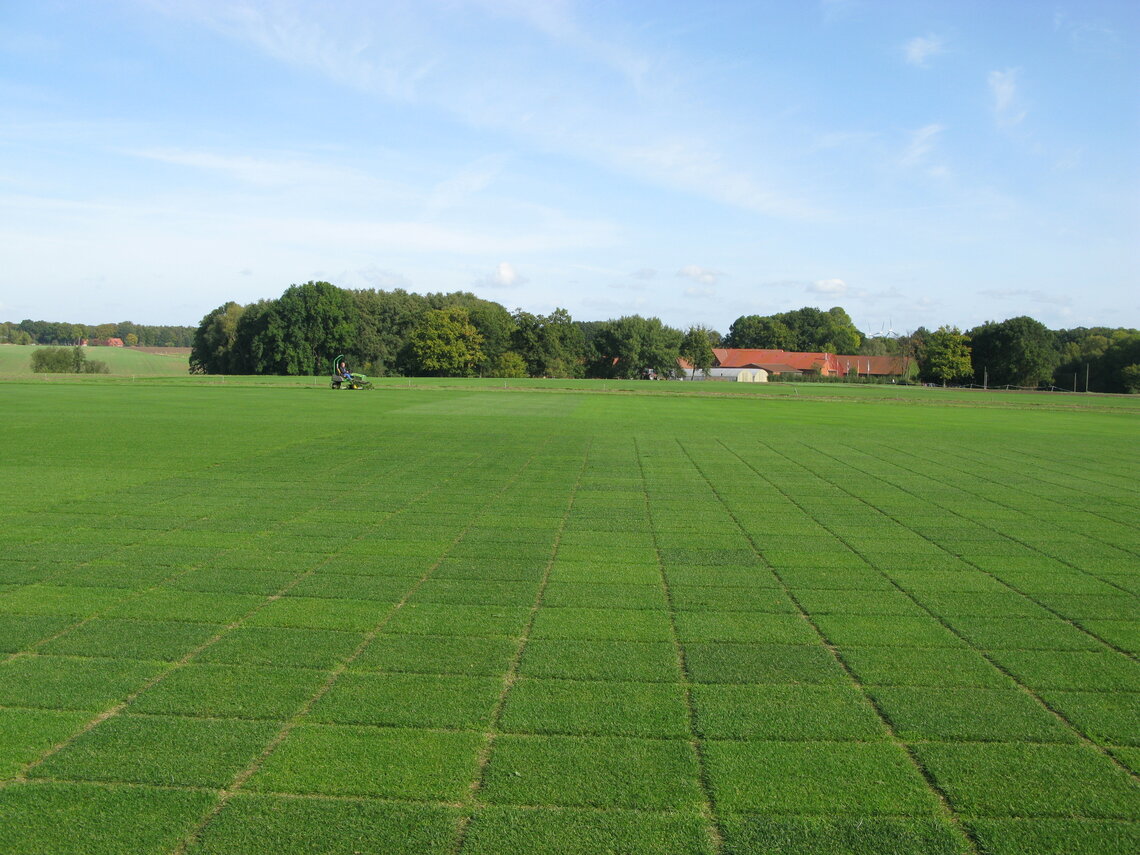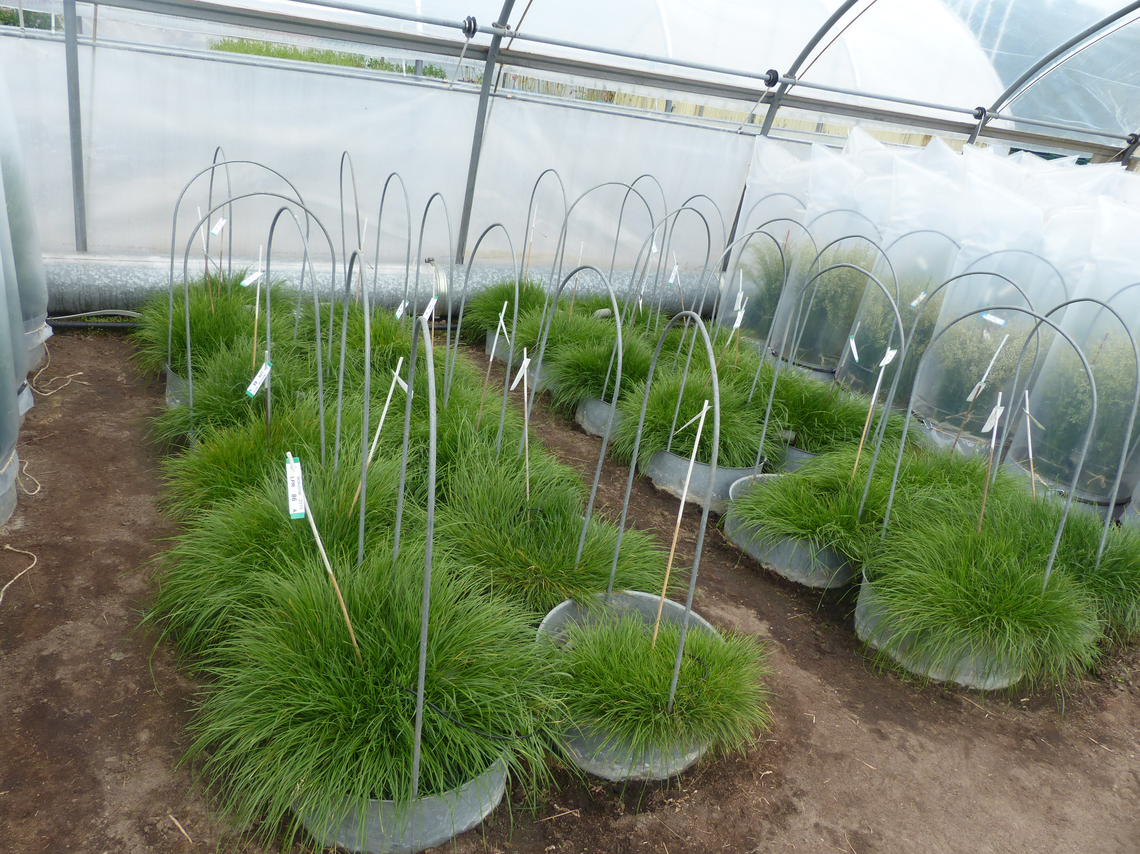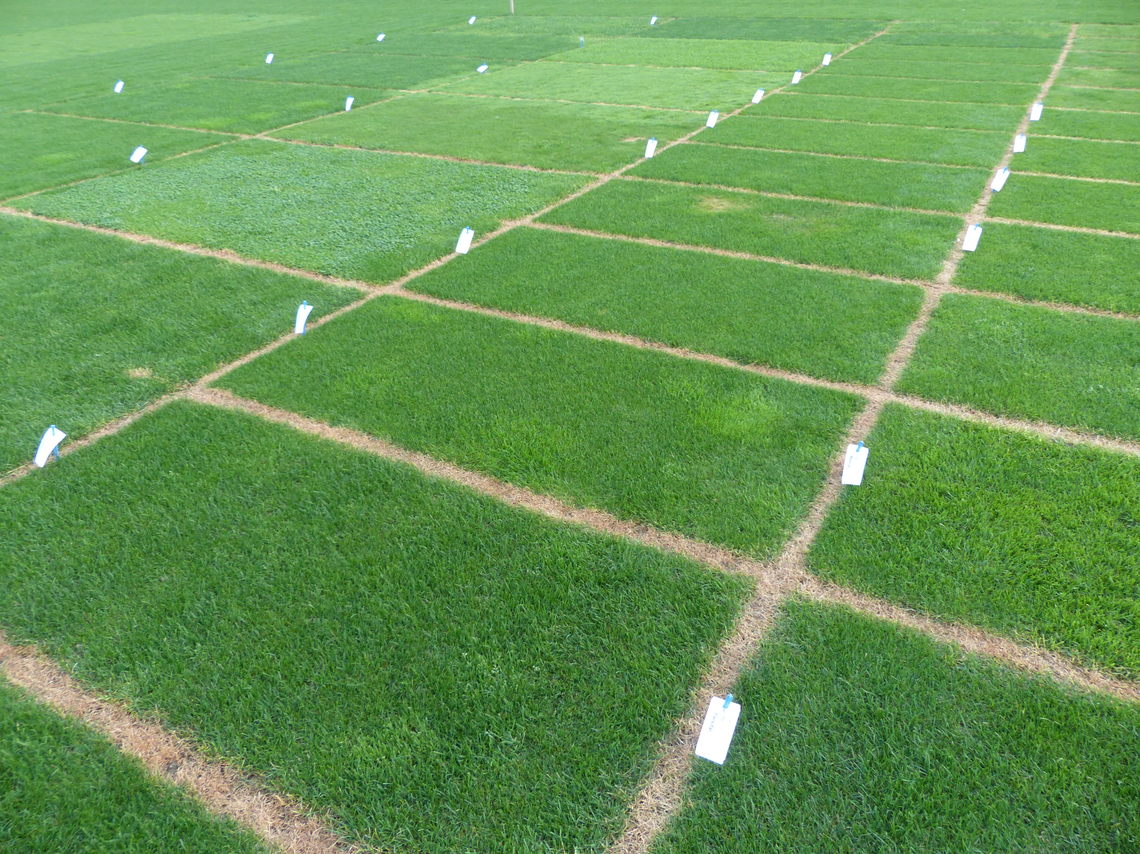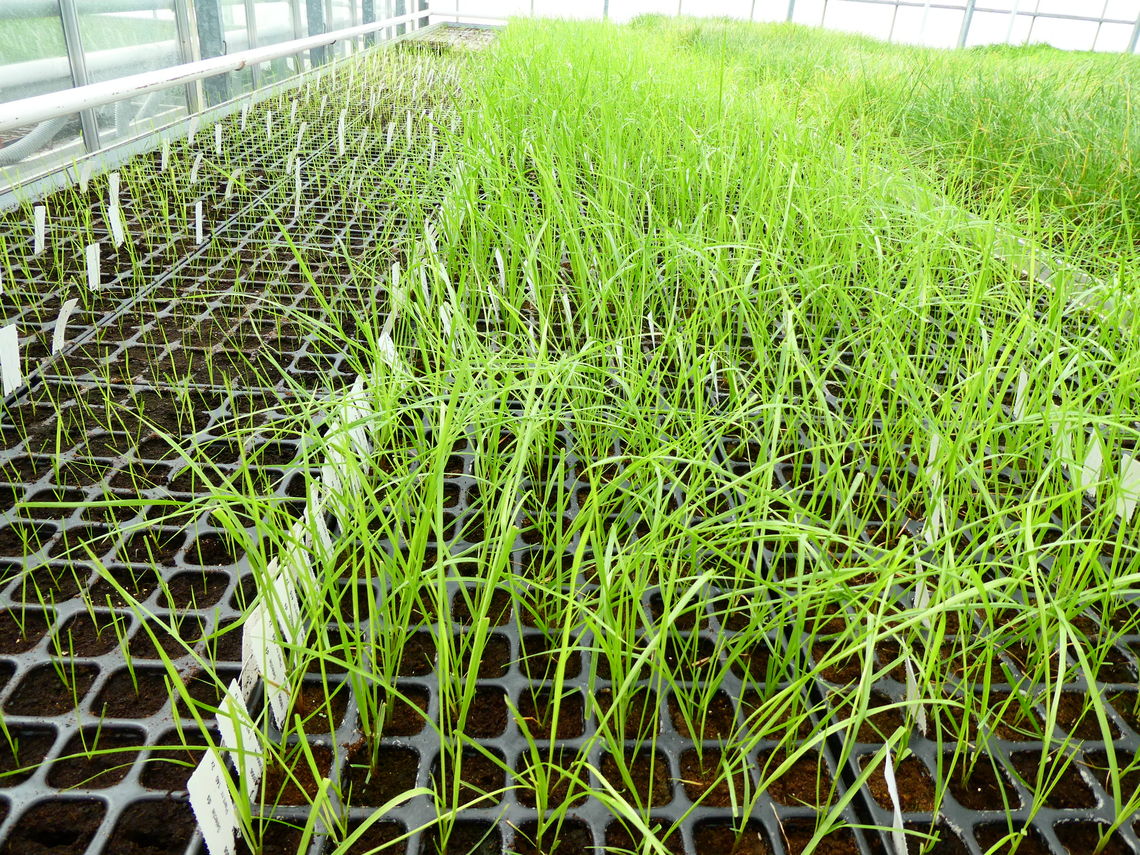Plant breeding is a challenging and time-consuming process. Deutsche Saatveredelung (DSV) has been active in grass breeding for more than 100 years. In contrast to forage grasses, which have to grow quickly and intensively, turf grasses are supposed to have exactly the opposite properties. Typical requirements are, that the grass gows slow, it should form a dense lawn, tolerates frequent and deep cuts of the lawnmower and in addition e.g. on the sports field, withstand a hard wear. The development of suitable varieties is a demanding task that is carried out in our seed breeding stations with dedication, skill and patience: Twelve to fifteen years pass before a lawn grass variety is approved for use and ready to face the challenges of the practice.
One variety alone does not make a lawn. There are different species and types of lawn grass, e.g. perennial ryegrass, red fescue or tall fescue, and within these types there are hundreds of varieties. Therefore, expertise is required to combine the right species to compose diverse mixtures to meet various applications and requirements. For example, an English ornamental lawn contains completely different types and varieties than a heavily used football field.
EuroGrass Premium seed mixtures are intelligently combined grass species and varieties with a wide range of properties that complement each other. For the user that means higher success of seeding or repairing your lawn.
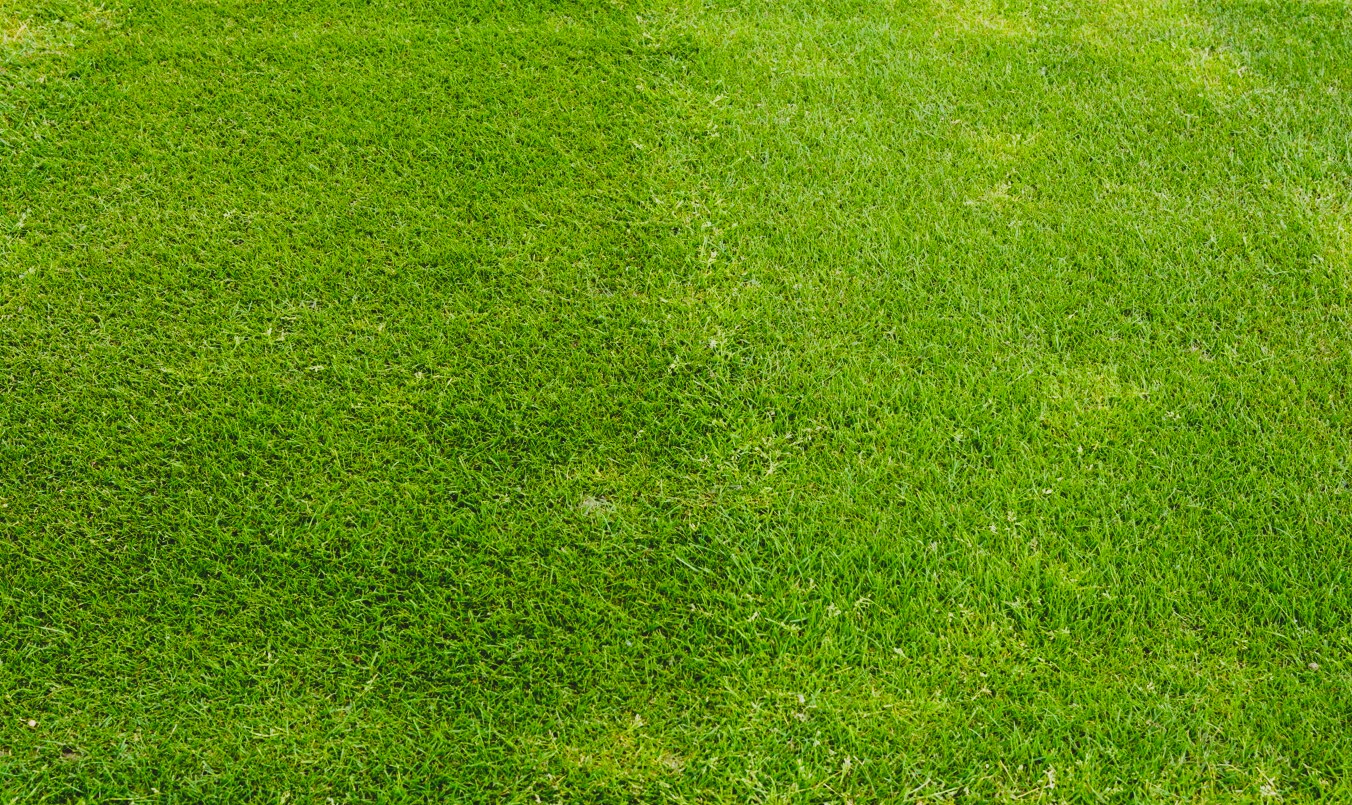
Color difference of varieties
